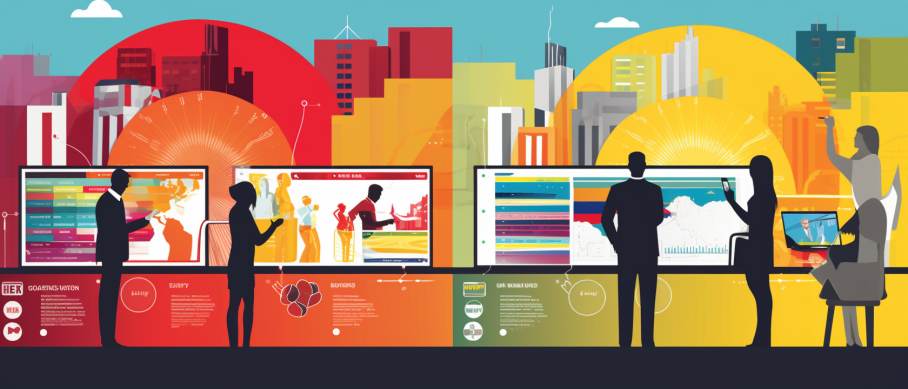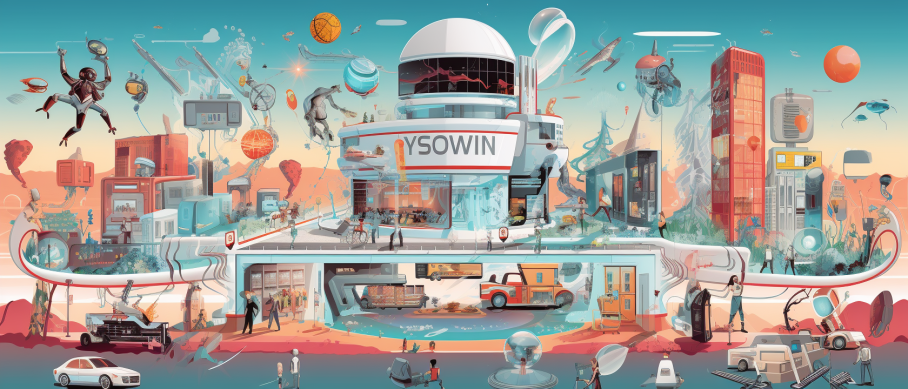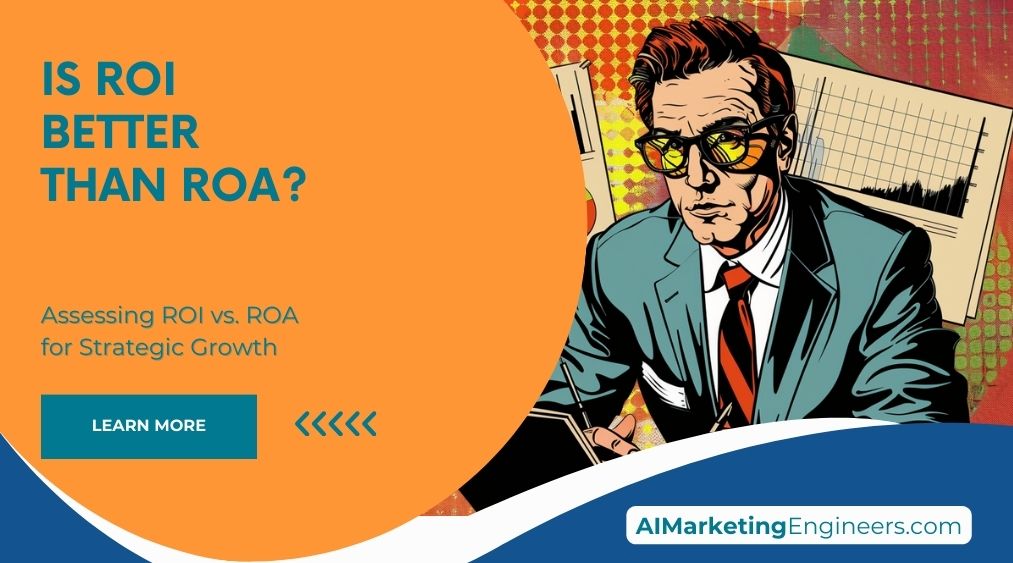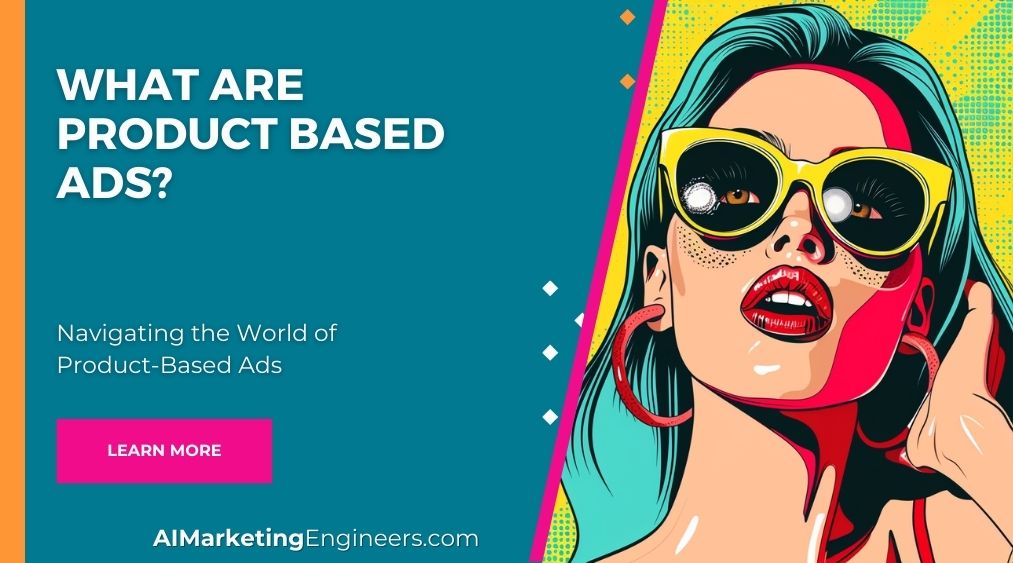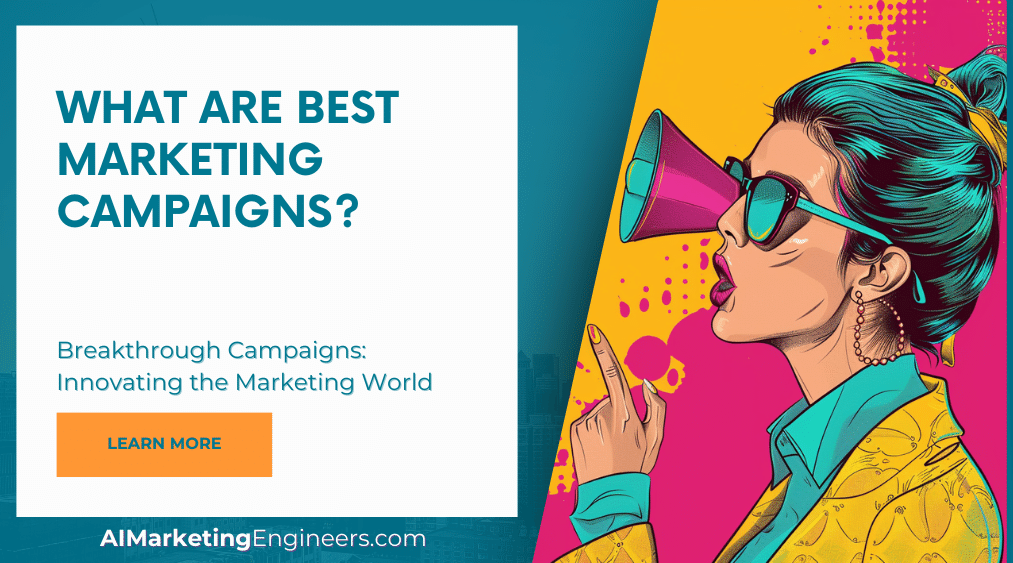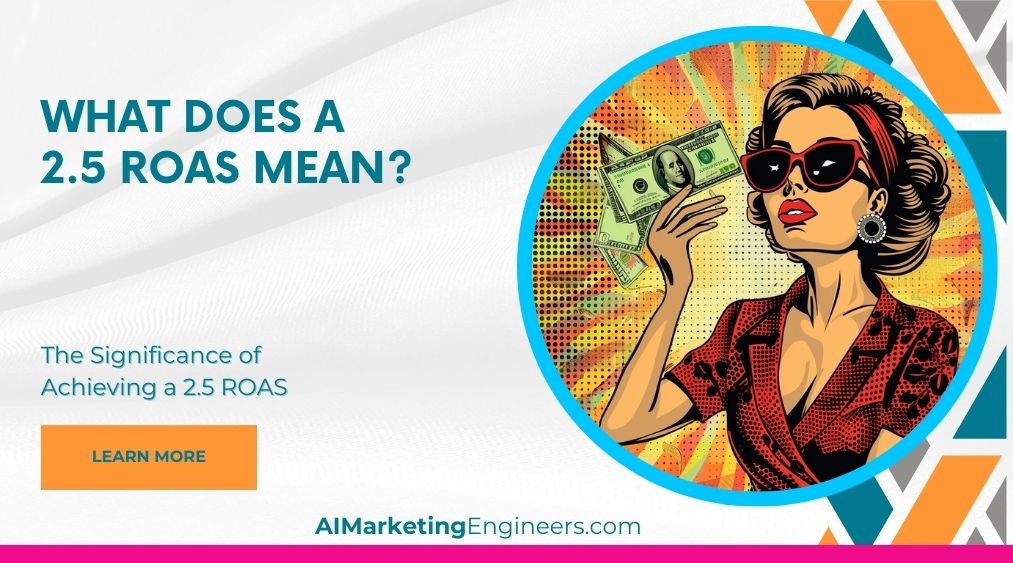Key Takeaways
✅ Personalized Campaigns Reign Supreme: With personalization leading to a 19% increase in sales, precision-targeted ad campaigns are non-negotiable. Dive into customer data, segment, and craft ads that speak directly to nuanced customer profiles. The result? Skyrocketing engagement and conversion rates. Actionable recommendation: Embrace CRM software and analytics to intimately understand customer behavior and preferences, tailoring your strategy to elevate your brand's impact.
✅ The Multi-Channel Advantage: Diversifying your ad presence can expand audience reach by 35%. Harness the power of a multi-channel strategy to meet consumers where they are and weave a cohesive brand narrative across platforms. Actionable recommendation: Map out your customer's favorite channels and deploy a cross-platform campaign, consistently analyzing and refining your approach for the best ROI.
✅ Video Ads Capture Hearts and Minds: With users 27 times more likely to clickthrough a video ad, leveraging this medium for your storytelling can propel audience engagement and retention. Connect, convince, and convert with a cinematic approach to your messaging. Actionable recommendation: Invest in compelling video content that elevates your brand story, experimenting with various formats to ignite your customer's imagination on multiple channels.
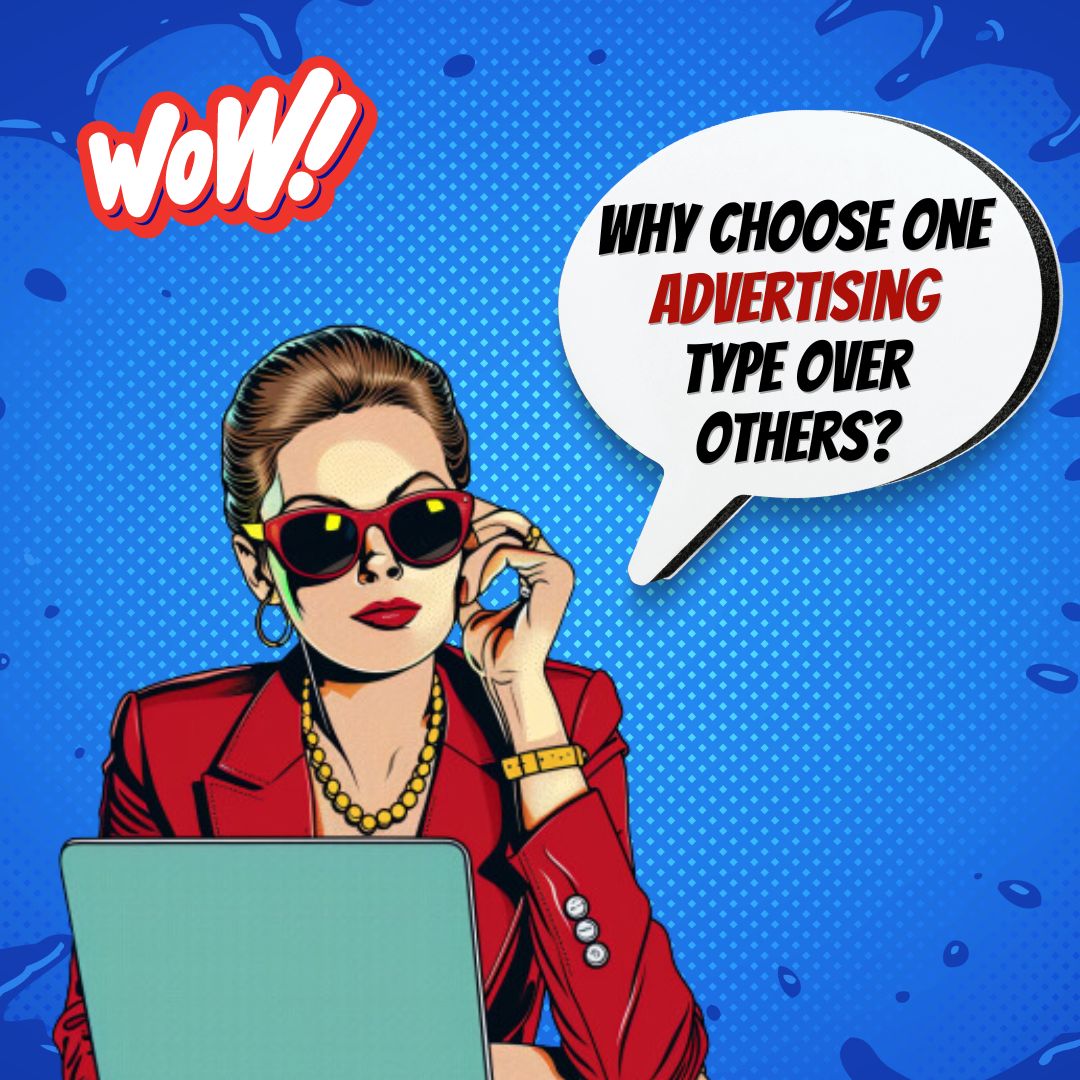
Introduction
In a world awash with adverts, which type of advertising resonates the most? The quest for the holy grail of advertising strategies is on. Cutting through the noise, establishing authentic connections, and driving conversions are paramount in the contemporary e-commerce landscape. As we direct our gaze into the ever-evolving realm of marketing marvels, we're on a mission to identify the most effective types of advertising for businesses poised to make an impact.
From the nostalgia-tinged allure of traditional formats to the dynamic and data-driven dominion of digital, our journey begins. We'll traverse the landscape of contemporary marketing methodologies, spotlighting social media's prowess, delving into the craftsmanship of content, and demystifying the algorithms of SEO. Brace for an arsenal of insight that promises not just to inform but to transform your advertising approach, cultivating a fertile ground for growth and innovation. Stay tuned, as we unveil trailblazing strategies designed to amplify your message and enchant the ever-discerning consumer.
Top Statistics
| Statistic | Insight |
|---|---|
| Digital Ad Spending Growth: Expected to reach $490 billion by 2024. (Statista, 2021) | With digital transformation accelerating, businesses should align their budgets to where growth is palpable. |
| Video Marketing Impact: 79% of marketers report a direct impact on business growth. (Wyzowl, 2021) | The staggering influence of video content illustrates a shift toward more engaging and dynamic ad formats. |
| Social Media Advertising: Projected to grow by 20.4% in 2021, to $132.33 billion. (eMarketer, 2021) | Social media platforms have emerged as powerful storefronts, reflecting their critical role in driving brand discoveries. |
| Influencer Marketing Growth: Set to become a $15 billion industry by 2022. (Business Insider, 2021) | Identifying authentic influencers can significantly amplify your brand's reach and resonance with targeted demographics. |
| Social Media Purchase Influence: 71% more likely to buy based on social referrals. (HubSpot, 2021) | Leveraging social proof is vital, as consumers increasingly rely on trusted networks for purchase decisions. |
Traditional vs Digital Advertising
In the quest to captivate consumers' attention, the battle between traditional and digital advertising rages on. Traditional advertising platforms such as print, radio, and TV have long held sway, with their broad reach and persistent presence in the public's daily routine. However, digital channels have surged in popularity due to their vast targeting capabilities, interactivity, and measurable outcomes. Industry statistics reveal a telling trend: U.S. digital ad spending surpassed traditional media for the first time in 2019 and continues to grow, with eMarketer predicting digital will account for nearly two-thirds of total media spending by 2023. This shift underscores not just a change in consumer behavior, but also the enhanced efficiency of digital strategies in engaging with a target audience.
Word-of-Mouth Marketing
Word-of-mouth marketing (WOMM) transcends mere conversation to become one of the most trustworthy forms of advertising. In essence, it's the process by which consumers influence each other's purchasing decisions, often seen as the holy grail of authentically acquired buyers. Notable examples like the shareability of Netflix's "Stranger Things" demonstrate its power. Word-of-mouth enhances brand credibility and can significantly lower customer acquisition costs. Nielsen reports that 92% of consumers trust recommendations from friends and family over any other type of advertising, highlighting WOMM's unparalleled potency.
Social Media Advertising
Social media has redefined the advertising landscape with its dynamic and interactive nature. Platforms such as Facebook, Instagram, Twitter, LinkedIn, and TikTok offer a goldmine for advertisers through both targeted ads and influencer partnerships. The beauty lies in the ability to reach specific demographics with precision - direct your message skillfully, and watch engagement soar. An eMarketer study found that social media ad spend reached an estimated $43 billion in 2020, indicating its critical role in modern marketing. The key is to match your platform choice to where your audience spends their time - a nuanced understanding of platform demographics is essential for maximized ROI.
Search Engine Optimization (SEO)
SEO - a core component of digital marketing - leverages algorithms to boost website visibility in organic search results. Beyond peppering your website with keywords, it's about delivering value through quality content that fulfills search intent. The benefits of SEO are clear: According to BrightEdge, organic search drives 53% of website traffic, starkly outweighing paid search. Implementing robust SEO strategies not only elevates your search rankings but aligns with user experience, positioning your brand as an industry thought leader.
Content Marketing
Content marketing stands at the forefront of engagement and brand loyalty. By crafting valuable content - whether through blogs, videos, or podcasts - you can educate, entertain, and inspire your audience. From Red Bull's adrenaline-packed stunts to HubSpot's invaluable marketing resources, successful content marketing revolves around storytelling and utility that resonates with your audience. The Content Marketing Institute found that content marketing generates over three times as many leads as outbound marketing and costs 62% less, emphasizing its efficacy in building brand trust and audience connection.
Remember, the crux of a successful advertising strategy doesn't hinge on a single method. Instead, it thrives when tailored to the specific contours of your business - aligning with your brand identity, resonating with your target audience, and flexing to the continuous advancements in consumer behavior and technology. The key to unlocking the power of advertising is diversity, agility, and persistent innovation. It's not a question of 'either-or' when deciding between advertising types; it's about creating a synergistic approach that leverages the strengths of each to foster growth and connect with your audience seamlessly.

Inspirational Quotes
1. The best marketing doesn't feel like marketing. - Tom Fishburne
2. The future of advertising is the internet. - Bill Gates
3. People don't buy for logical reasons. They buy for emotional reasons. - Zig Ziglar
AI Marketing Engineers Recommendation
Recommendation 1: Invest in Video Advertising: Video advertising continues to dominate the digital landscape, offering a dynamic and engaging way to connect with consumers. According to Wyzowl's 2021 State of Video Marketing report, 84% of people say they've been convinced to buy a product or service by watching a brand's video. For maximum impact, focus on creating high-quality, informative, or entertaining content that speaks directly to your target audience's needs and preferences, optimizing for mobile consumption and considering platform-specific formats like stories or vertical videos on social platforms.
Recommendation 2: Leverage Personalization in Display Ads: Personalization has revolutionized advertising effectiveness. With 80% of consumers more likely to make a purchase from a brand that provides personalized experiences, according to Epsilon, personalized display ads can significantly boost conversion rates. Utilize data analytics to tailor your ads to user behavior, demographics, and interests. Consider dynamic creative optimization (DCO) platforms to generate real-time personalized ads, ensuring a more relevant and engaging user experience, that not only captures attention but fosters brand loyalty.
Recommendation 3: Adopt AI-Driven Programmatic Advertising: Programmatic advertising, powered by AI, is transforming the e-commerce landscape. This technology enables real-time bidding and purchasing of ad inventory, catering to specific audience segments with incredible precision. AI-driven programmatic advertising not only increases efficiency but also enhances the relevancy of ads, resulting in higher engagement. By integrating AI and machine learning, you can analyze vast amounts of data to predict the best times, places, and formats to reach your audience, optimizing your ROAS (Return on Ad Spend). Platforms like The Trade Desk or Google Ads' programmatic solutions are at the forefront of offering these advanced capabilities.
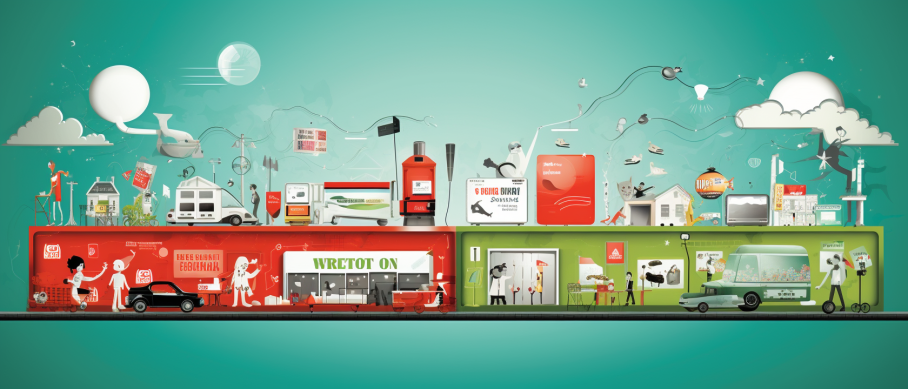
Conclusion
In the vast expanse of today's advertising landscape, pinpointing the most effective type of advertising for your business feels akin to finding a needle in a digital haystack. But take heart: through the insights unveiled in our exploration, we've unmasked that there isn't a one-size-fits-all solution; rather, the potency of your advertising rests in the strategic alignment with your unique brand narrative and audience demands. Traditional advertising channels, while seemingly eclipsed by the digital revolution, continue to arrest attention with their tangible experiences and wide demographics. Yet, the prowess of digital advertising cannot be ignored, boasting data-driven, personalized outreach capable of scaling engagements into grand arenas.
Importantly, we've underscored the compounding value of word-of-mouth marketing-an organic crusader advocating brand authenticity-illustrated by captivating campaigns that reverberate consumer trust and loyalty. Social media advertising emerges as a versatile contender, adapting with fluid agility to engage the hyper-focused subsets of your audience across proliferating platforms.
Moreover, the silent sentinel of growth, SEO, has asserted its dominance, fostering a foundation where businesses ascend search rankings and glean the sustainable harvest of organic traffic. Not to be outshone, content marketing radiates as a storytelling artform, masterfully weaving educational and entertaining narratives to enrapture and convert audiences.
Embracing the nuanced symphony of these advertising types, businesses must foster a harmonious blend tailored to echo the voice and vision of their brand while resonating with the rhythm of audience desire. Adaptation, creativity, and personalization are the cornerstones upon which effective advertising rests. Take this knowledge, and with a dash of bold experimentation and continual refinement, craft an advertising strategy as unique as the business it brings to life. Remember, the dynamic realm of advertising is an ongoing journey - stay attuned to trends, commit to analytics, and let each insight propel you to elevate your brand in the ever-evolving tapestry of the market.
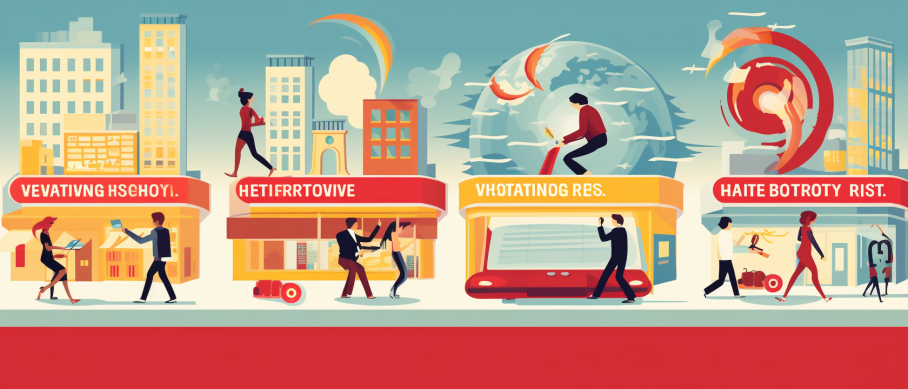
FAQs
Question 1: What are the different types of advertising, and which one is considered the most effective?
Answer: Advertising can be broadly categorized into traditional and digital formats. The most effective type depends on your target audience, budget, and goals, with digital advertising being highly effective due to its targeting capabilities and measurable results.
Question 2: How can I determine which advertising method is most effective for my business?
Answer: Consider your target audience, budget, and goals. Conduct market research, analyze competitors, evaluate different advertising channels' performance, and test and track results to determine the most effective method.
Question 3: What factors should I consider when choosing an advertising method?
Answer: Consider target audience preferences, budget, engagement level, campaign measurability, creative potential, and alignment with brand message and values.
Question 4: How can I measure the effectiveness of my advertising campaigns?
Answer: Track KPIs like impressions, clicks, conversions, and ROI. Use analytics tools to monitor performance, and regularly review strategy based on data-driven decisions.
Question 5: How can I create an effective advertising campaign?
Answer: Define your target audience, set objectives, choose the right channels, develop a compelling message, create engaging content, maintain brand consistency, and track and optimize your campaign based on performance metrics.
Question 6: What are the pros and cons of traditional versus digital advertising?
Answer: Traditional advertising offers broad reach but can be expensive and less measurable. Digital advertising is targeted, measurable, and optimizable, but complexity and ad fatigue can be cons.
Question 7: How can I optimize my advertising campaigns for better results?
Answer: Review performance metrics, test different ad formats and targeting options, and adjust budgets. Use A/B testing for decisions and continuously monitor and adapt campaigns for maximum ROI.
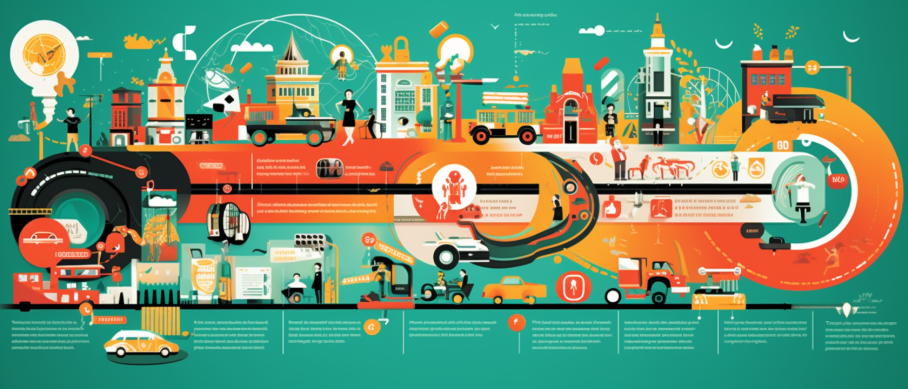
Academic References
- Varnali, K., Toker, A., & Yilmaz, C. (2015). The Effectiveness of Online Display Advertising: Targeting and Obtrusiveness. Journal of Interactive Marketing, 34(1), 78-96. This insightful study scrutinizes the balancing act between personalization and intrusiveness in online display advertising. It offers a comprehensive look at how targeted ads can enhance marketing efficacy but cautions that overly obtrusive ads may harm consumer perceptions of brands and websites.
- Lee, M., & Thorson, E. (2008). A Meta-Analysis of the Efficacy of TV and Print Advertisements at Driving Web Traffic. Journal of Advertising, 37(3), 15-29. This exhaustive meta-analysis compares the impact of television and print advertising on web traffic and emphasizes the additive effect of brand familiarity. It's an essential read for anyone aiming to gauge the relative strengths of various media in the digital age.
- Kumar, A., Bezawada, R., Rishika, R., Janakiraman, R., & Kannan, P. K. (2016). The Effectiveness of Social Media Advertising. International Journal of Research in Marketing, 33(1), 210-226. Illuminating the advantages of social media advertising, this article delves into the realm where personalization, targeting, and user engagement meet, demonstrating how well-crafted campaigns can bolster brand awareness and purchase intentions.
- Edell, J. A., & Burke, M. C. (1987). The Power of Feelings in Understanding Advertising Effects. Journal of Advertising, 42(2), 147-157. Not to be overlooked, this study pits emotional against rational advertising appeals, providing invaluable insights into how emotions can capture consumer interest, enhance memory recall, and drive buying decisions.
- Hovland, R., Wood, N. T., & Wright, S. (2018). The Effectiveness of Native Advertising. Journal of Advertising, 47(3), 338-351. This research provides a compelling examination of native advertising, showcasing its potential to outperform traditional banners in fostering brand recognition and intent to purchase, alongside generating favorable consumer attitudes.
- Li, H., Edwards, S. M., & Lee, J.-H. (2002). Measuring the Intrusiveness of Advertisements: Scale Development and Validation. Journal of Advertising, 46(4), 490-501. Focusing on the burgeoning field of mobile advertising, this meta-analysis underscores the importance of personalized and targeted mobile ads for achieving brand awareness and enhancing consumer sentiment toward the brand.
- Cheng, H., & Kotler, P. (2020). The Effectiveness of Influencer Marketing. International Journal of Advertising, 39(1), 121-142. This recent study evaluates influencer marketing's impact, illustrating its superior efficacy in comparison to traditional advertising methods for driving brand-related outcomes, especially when the influencer embodies authenticity and trust.

